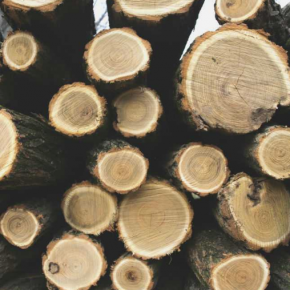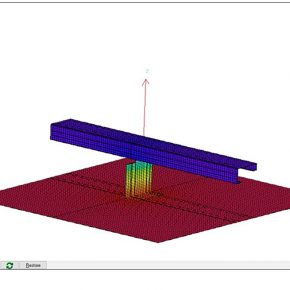
GUEST ARTICLE: Biomass boilers – could they be the future?
If you’re looking for a renewable heating solution that reduces your reliance on fossil fuels, you may be considering changing over to a biomass boiler. Whether you’re a business looking for innovative ways to control costs and maximise profits, or a home owner keen on future proofing energy supplies at realistic prices, there is no shortage of renewable energy companies, could this be the solution you’ve been looking for?
Before you make a major investment decision and rip out your old central heating boiler, let’s take a look at the pros and cons of going biomass.
What is biomass heating?
Biomass is organic material derived from living organisms such as plants – wood, energy crops, food waste or even industrial waste – that can be exploited as fuel. The most popular biomass energy source is wood, typically as pellets, chips or logs.
- Wood pellets – these are fast becoming the industry standard for biomass boilers. Convenient to use and easy to store, they burn cleanly and produce little ash.
- Wood chips – as an older alternative to pellets, chips tend to be used where users have their own supply of wood that they can chip themselves.
- Logs – For those with direct access to their own timber supply, logs may be the most convenient form of biomass fuel
The fuel is burnt in boilers and stoves, which releases energy that can be used for heating the inside of domestic or commercial buildings, as well as providing hot water. While stoves typically only heat one room, biomass boilers are able to heat entire properties.
What are the advantages of a biomass boiler?
On the face of it, getting a biomass boiler may seem like a no brainer. It’s an environmentally friendly energy source that regenerates much quicker than, say, coal, making it a renewable option. Did you know that around 6 million tonnes of wood are wasted annually in the UK by being dumped into landfill? Used as fuel in biomass boilers instead, that wood could be heating 1.5 million homes instead. 12 cubic metres of wood chips have the same heating capacity of 1,000 litres of heating oil.
What’s more, biomass is carbon neutral since the same amount of CO2 is released by the burning process than is later absorbed by the plants that are being grown as energy crops. Biomass supplies green energy while helping with the disposal of wood and other organic waste materials. In fact, if you replaced a coal or electricity based heating system with a biomass boiler, you could cut a staggering 9.5 tons of your annual carbon dioxide output. The life expectancy of a regular central heating boiler is up to 15 years, compared to a domestic biomass boiler that should last you 18-20 years on average. Depending on the efficiency of your biomass boiler, your lifestyle and your house, you can expect a payback period of 5-9 years.
While the cost of oil and gas appears to be ever increasing, with no downturn in energy prices in sight, biomass prices are much more stable. Cheaper than electric heating and solid fuel, biomass costs about the same as gas.
And finally, biomass boilers qualify for the government’s Renewable Heat Incentive (RHI) scheme, meaning you could receive periodical payments for several years and shorten the time it takes to repay your initial investment. According to renewable energy company Geo Green Power, domestic tariff payments can last for up to 7 years, while non-domestic sectors are able to receive financial support for up to 20 years.
And the downsides of biomass heating?
Biomass heating systems are larger than gas or oil boilers, plus you need space to store the fuel itself such as a log store, or hopper for pellets or chips. For the biomass fuel to burn with maximum efficiency, it’s essential that it is kept in dry storage. Unless you have sufficient space in and outside the house, this may not be the most practical solution. As for biomass heating for a flat – this is possible but probably only realistic if energy is provided for the entire block. One of the biggest disadvantages of a biomass boiler is the initial outlay, which can be off-putting. Coming in around anywhere between £4,000 and £8,000, the purchase and installation is a lot higher compared to traditional oil or gas boilers. Of course, some of this will be offset the RHI payments, and in the longer term you’ll be saving money because of the cheaper energy source.
Biomass boilers also need more attention. In addition to a weekly cleaning routine (some models have an auto cleaning feature), you’ll have to ensure that the system has a continuous supply of chips or pellets. Alternatively, you can invest in a hopper that only needs topping up periodically.
Depending on your location, reliable delivery may be a problem. Try to find a biomass fuel supplier in your vicinity to keep the carbon footprint low and compare delivery prices.
Latest news

26th July 2024
Enfield Speciality Doors completes world-class project for Atlas Copco HQ
A rundown office and warehouse building completely transformed into a modern headquarters for Atlas Copco has been fitted with more than 120 internal fire doors from Enfield Speciality Doors.
Posted in Access Control & Door Entry Systems, Articles, Building Industry News, Building Products & Structures, Building Systems, Case Studies, Doors, Interior Design & Construction, Interiors, Posts, Restoration & Refurbishment, Retrofit & Renovation, Security and Fire Protection, Sustainability & Energy Efficiency, Timber Buildings and Timber Products, Wooden products
26th July 2024
Abloy UK launches new white paper
Abloy UK, a leading provider of security and access control solutions, has launched a new white paper.
Posted in Access Control & Door Entry Systems, Architectural Ironmongery, Articles, Building Industry News, Building Products & Structures, Building Services, Doors, Facility Management & Building Services, Health & Safety, Information Technology, Innovations & New Products, Publications, Research & Materials Testing, Security and Fire Protection
26th July 2024
MCRMA Member Profile: David Roy, Director of Roofconsult
David Roy of MCRMA member company Roofconsult has more than 50 years’ experience to draw upon working in the building envelope sector and a unique perspective on how it has changed in that time.
Posted in Articles, BIM, Infrastructure & CAD Software, Building Associations & Institutes, Building Industry News, Building Products & Structures, Building Services, Building Systems, Cladding, Information Technology, Restoration & Refurbishment, Retrofit & Renovation, Roofs, Walls
26th July 2024
Strand: Enhancing Door Functionality and Safety
Craig Fox, Sales Director for Strand Hardware, outlines how door industry professionals might apply door limiting stays…
Posted in Architectural Ironmongery, Articles, Building Industry News, Building Products & Structures, Building Services, Doors, Facility Management & Building Services, Health & Safety, Restoration & Refurbishment, Retrofit & Renovation
 Sign up:
Sign up: